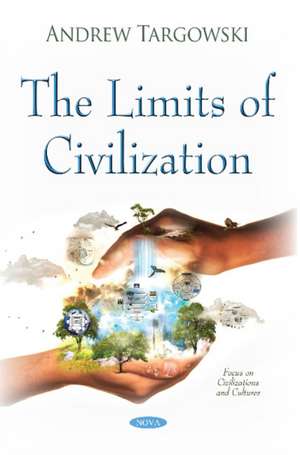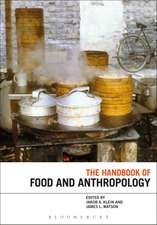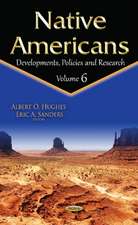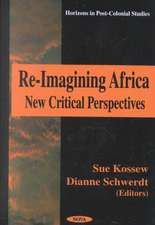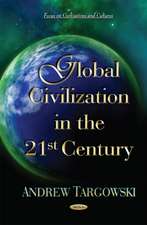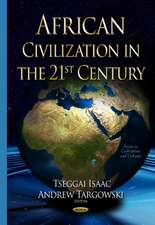Limits of Civilization
Autor Andrew Targowskien Limba Engleză Paperback – 2017
| Toate formatele și edițiile | Preț | Express |
|---|---|---|
| Paperback (1) | 506.16 lei 22-36 zile | |
| Nova Science Publishers Inc – 2017 | 506.16 lei 22-36 zile | |
| Hardback (1) | 788.25 lei 22-36 zile | |
| Nova Science Publishers Inc – 2015 | 788.25 lei 22-36 zile |
Preț: 506.16 lei
Preț vechi: 649.02 lei
-22% Nou
Puncte Express: 759
Preț estimativ în valută:
96.86€ • 101.38$ • 80.61£
96.86€ • 101.38$ • 80.61£
Carte disponibilă
Livrare economică 10-24 martie
Preluare comenzi: 021 569.72.76
Specificații
ISBN-13: 9781536107562
ISBN-10: 1536107565
Pagini: 124
Dimensiuni: 155 x 230 x 13 mm
Greutate: 0.27 kg
Editura: Nova Science Publishers Inc
Colecția Nova Science Publishers Inc
ISBN-10: 1536107565
Pagini: 124
Dimensiuni: 155 x 230 x 13 mm
Greutate: 0.27 kg
Editura: Nova Science Publishers Inc
Colecția Nova Science Publishers Inc
Cuprins
Foreword; A Note About the Author; The Nature of Civilization; How Civilizations Perish; The Second Great Crisis of Civilization in History; The Global Civilization Development & Its Repercussions; The Death Triangle of Civilization in the 21st Century; Capitalism & the 21st Century Limits of Civilization; Superconsumerism in the 21st Century; Technology & the Limits of Civilization in the 21st Century; Climate & the 21st Century Limits of Civilization; Culture & the 21st Century Limits of Civilization; The Power of Crisis Relations & the Limits of Civilization in the 21st Century; Can Civilization Last?; Where Are We Heading?; Bibliography; Index.
Recenzii
"This book is the culmination of a lifetime of thought by a great civilizationalist about some of the most difficult challenges now facing the human race. Ranging across diverse fields of theoretical inquiry, Targowski's arguments need to be confronted and addressed urgently by all those trying to make sense out of the difficulties of the present, in order to work effectively for a more hopeful future." - Reviewed by David J. Rosner, Ph.D., Associate Professor, Metropolitan College of New York, President, International Society for the Comparative Study of Civilizations
